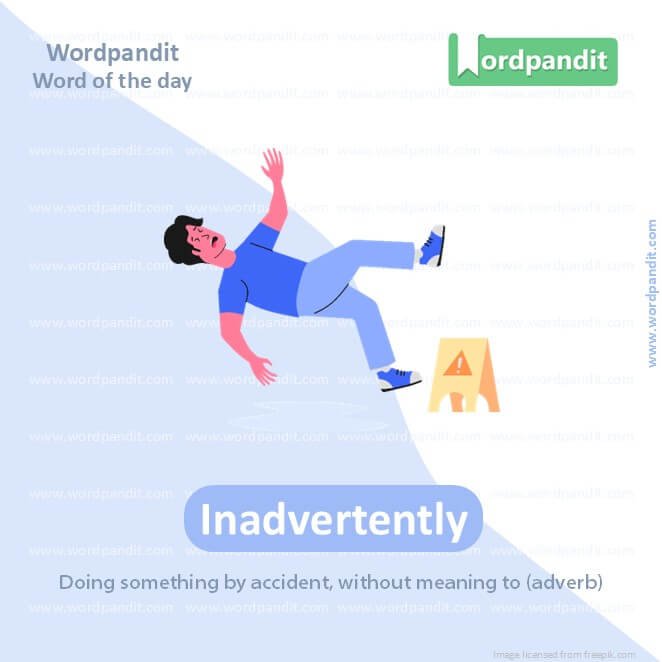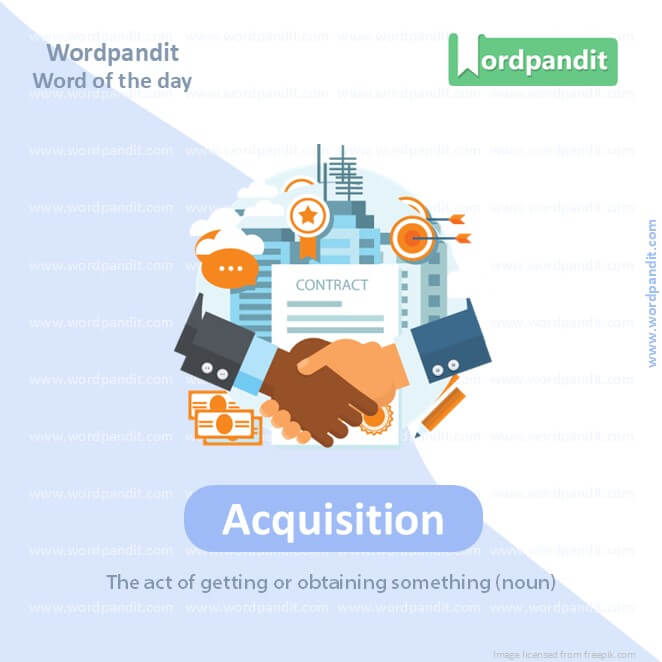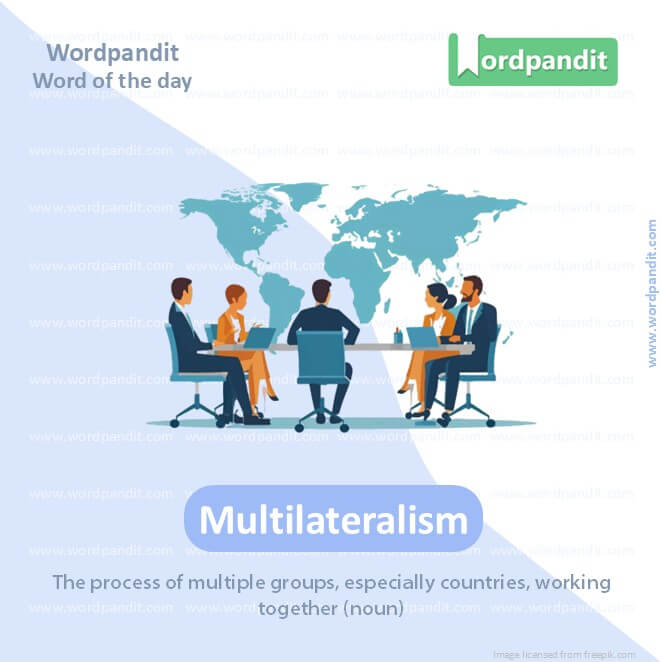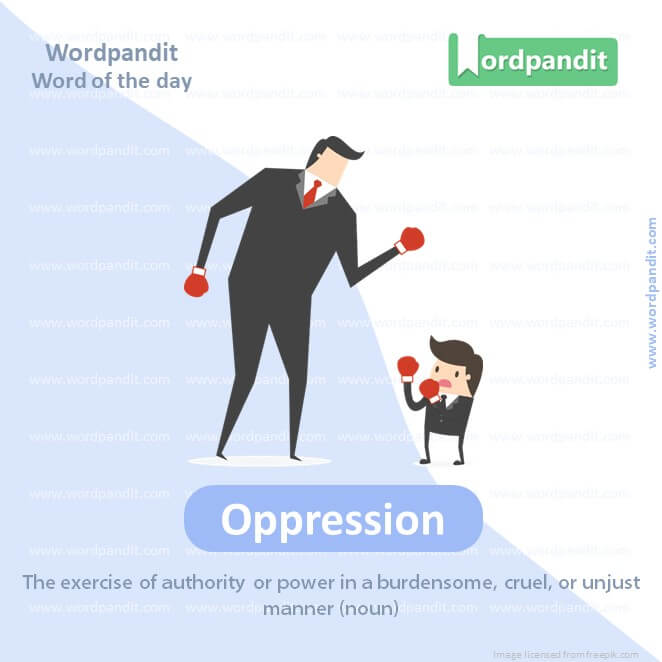Daily Vocabulary Words: Enhance Your Lexicon with Leading Newspapers & Publications
Welcome to the Daily Vocabulary section at Wordpandit!
Our mission is straightforward: to bring you essential vocabulary words featured in top newspapers and publications worldwide. By focusing on words you’ll encounter in renowned sources, we aim to help you enhance your vocabulary effectively and practically.
Our selection includes words from:
– The New York Times
– The Washington Post
– Scientific American
– BBC
– The Guardian
– Psychology Today
– Wall Street Journal
– The Economist
– The Hindu
– The Times of India
– The Economic Times
– Hindustan Times
– Live Mint
– The Indian Express
– And many more.
We are committed to your vocabulary development. Simply visit this section regularly and explore the daily posts. This is your go-to repository for commonly used words, providing significant practical benefits by familiarizing you with vocabulary from the leading publications listed above.
Make it a habit to visit our website daily and expand your lexicon with words from top newspapers and publications.

WORD-1: Inadvertently
CONTEXT: Institutions tasked with upholding international law often inadvertently undermine state sovereignty when responding to a conflict between a state and a non-state actor.
SOURCE: Al Jazeera
EXPLANATORY PARAGRAPH: Imagine you’re playing with your toys and accidentally knock over a cup of juice, but you didn’t mean to. When you do something like this by mistake, that’s called doing it “inadvertently.” It happens when you’re not paying attention or didn’t realize it would happen.
MEANING: Doing something by accident, without meaning to (adverb).
PRONUNCIATION: in-AD-ver-tent-lee
SYNONYMS: unintentionally, accidentally, unknowingly, mistakenly, unconsciously
USAGE EXAMPLES:
1. He inadvertently spilled his milk on the table.
2. She inadvertently stepped on her friend’s foot while dancing.
3. The ball rolled into the street inadvertently.
4. The company inadvertently sent out the wrong email to its customers.

WORD-2: Extremist
CONTEXT: It follows an extremist ideology, conducts deadly cross-border operations.
SOURCE: Al Jazeera
EXPLANATORY PARAGRAPH: Think about someone who feels so strongly about something, like loving their favorite superhero, that they believe their way is the only right way and won’t listen to anyone else. An “extremist” is a person who feels very strongly about an idea and wants everyone to follow it, no matter what.
MEANING: A person who holds extreme views, especially in politics or religion (noun).
PRONUNCIATION: ex-TREE-mist
SYNONYMS: fanatic, radical, zealot, militant, hardliner, ultraconservative
USAGE EXAMPLES:
1. The extremist refused to compromise on his views.
2. Some extremist groups can be dangerous because they believe only they are right.
3. She was worried that the extremist opinions would lead to violence.
4. The government took action against the extremist group.
WORD-3: Deplorable
CONTEXT: Social prejudices as well as some customs and practices have always opposed the expansion of women’s rights. This is a rather deplorable mindset.
SOURCE: The Hindu
EXPLANATORY PARAGRAPH: Imagine seeing a toy that is really old, dirty, and broken. You might think it looks really bad or “deplorable.” This word is used when something is so bad that it makes you feel sad or upset just looking at it.
MEANING: Very bad in a way that causes shock or disgust (adjective).
PRONUNCIATION: dih-PLOR-uh-bul
SYNONYMS: terrible, awful, disgraceful, dreadful, shameful
USAGE EXAMPLES:
1. The deplorable conditions of the house made it unsafe to live in.
2. His behavior was so deplorable that everyone in the room was shocked.
3. The report highlighted the deplorable state of the city’s public schools.
4. She found the treatment of the animals to be absolutely deplorable.

WORD-4: Acquisition
CONTEXT: The consequences of taxpayer-funded acquisition of votes.
SOURCE: New Indian Express
EXPLANATORY PARAGRAPH: Imagine you’re at a toy store and you pick out a toy to bring home. When you get something new, like a toy, that’s called an “acquisition.” It’s the act of getting something or gaining ownership of it.
MEANING: The act of getting or obtaining something (noun).
PRONUNCIATION: ak-wuh-ZISH-un
SYNONYMS: purchase, gain, obtainment, procurement, buy, attainment
USAGE EXAMPLES:
1. The company’s latest acquisition was a small startup.
2. His acquisition of a new bike made him very happy.
3. The museum’s recent acquisition is a rare painting.
4. Knowledge is the most valuable acquisition you can have.
WORD-5: Eroded
CONTEXT: During 2020-21, 50 state PSEs incurred a loss of Rs 8,246.47 crore and the net worth of 33 PSEs was eroded.
SOURCE: New Indian Express
EXPLANATORY PARAGRAPH: Imagine if you built a sandcastle on the beach, and over time, the waves slowly wash it away. That’s what “eroded” means—something slowly wears away or disappears over time.
MEANING: Gradually worn away or broken down (verb).
PRONUNCIATION: ih-ROH-did
SYNONYMS: worn down, crumbled, decayed, disintegrated, diminished
USAGE EXAMPLES:
1. The wind and rain eroded the mountain over many years.
2. The shoreline has eroded because of constant waves.
3. Trust between them eroded after many arguments.
4. The paint on the house has eroded due to the harsh weather.
WORD-6: Arguably
CONTEXT: Who arguably turned her conspicuous invisibility in the Biden regime to her advantage.
SOURCE: New Indian Express
EXPLANATORY PARAGRAPH: When you say something like, “this is the best ice cream ever,” but someone else might not agree, you’re making an opinion that others could argue about. Saying something is “arguably” true means that it could be debated or discussed.
MEANING: Used to say something is open to disagreement or could be argued (adverb).
PRONUNCIATION: AR-gyoo-uh-blee
SYNONYMS: possibly, perhaps, debatably, potentially, conceivably
USAGE EXAMPLES:
1. This is arguably the best movie of the year.
2. He is arguably the fastest runner on the team.
3. Arguably, the book was better than the movie.
4. She is arguably the most talented artist in the class.
WORD-7: Machinations
CONTEXT: The Shia population has been long fed up with Iran’s machinations using their Hezbollah proxy.
SOURCE: New Indian Express
EXPLANATORY PARAGRAPH: Imagine if someone is secretly planning tricks or sneaky actions to get what they want, like trying to hide toys from others. “Machinations” are those secret plans or tricks someone makes to get their way.
MEANING: Schemes or clever plans, often used for bad purposes (noun).
PRONUNCIATION: mash-uh-NAY-shunz
SYNONYMS: schemes, plots, conspiracies, intrigues, maneuvers
USAGE EXAMPLES:
1. The villain’s machinations were uncovered by the hero.
2. She was always involved in the machinations of office politics.
3. The story is full of political machinations.
4. His machinations were aimed at gaining power.

WORD-8: Multilateralism
CONTEXT: An opportunity to affirm our collective commitment to multilateralism.
SOURCE: Al Jazeera
EXPLANATORY PARAGRAPH: Think about when a group of friends all work together to solve a puzzle. “Multilateralism” means that many different groups or countries work together to solve problems or make decisions.
MEANING: The process of multiple groups, especially countries, working together (noun).
PRONUNCIATION: mul-tee-LAT-er-al-ism
SYNONYMS: cooperation, collaboration, teamwork, coalition-building, partnership
USAGE EXAMPLES:
1. The countries promoted multilateralism to solve global issues.
2. Multilateralism is key to addressing climate change.
3. They encouraged multilateralism in the peace talks.
4. Trade agreements were reached through multilateralism.
WORD-9: Nefarious
CONTEXT: An argument Israel has employed to justify its nefarious genocidal actions.
SOURCE: Al Jazeera
EXPLANATORY PARAGRAPH: Imagine a story where the bad guy tries to steal all the candy from a town. That bad guy would be called “nefarious” because he’s doing something very bad or wicked.
MEANING: Very evil or wicked (adjective).
PRONUNCIATION: nuh-FAIR-ee-us
SYNONYMS: wicked, evil, villainous, immoral, corrupt
USAGE EXAMPLES:
1. The villain had a nefarious plan to take over the city.
2. She stopped the nefarious plot before it could succeed.
3. They uncovered his nefarious deeds.
4. The movie’s antagonist was known for his nefarious actions.

WORD-10: Oppression
CONTEXT: The powerful can trample on the rights of the weak, perpetuating cycles of violence and oppression.
SOURCE: Al Jazeera
EXPLANATORY PARAGRAPH: Imagine if someone is constantly being mean to you and never lets you play with your toys or go outside. That’s called “oppression” when someone is treated very unfairly or meanly for a long time.
MEANING: The exercise of authority or power in a burdensome, cruel, or unjust
manner (noun).
PRONUNCIATION: uh-PRESH-un
SYNONYMS: cruelty, tyranny, domination, persecution, injustice
USAGE EXAMPLES:
1. The people fought against oppression to gain their freedom.
2. Oppression can make people feel powerless and sad.
3. History is full of examples of people rising up against oppression.
4. The government was accused of oppression by human rights groups.











